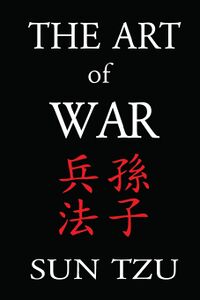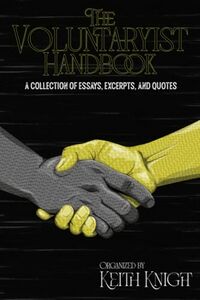Recommended books
- This page is a work in progress. Feel free to join to help edit Projex.Wiki. Check back for developments.
Add to this page:
|
1984

author: George Orwell
first published: 1949
Although it was written over seventy years ago (1949), "1984" is more relevant than ever. Orwell continues his personal critique of society and power. After staging an allegory of the Soviet totalitarian regime in the form of a fairy tale (Animal Farm), he goes further by telling of a dystopian future, between science fiction and reality, where the world is in the hands of a few superpowers that govern everything and all, establishing limits and rules to be respected. The "Big Brother", omniscient, with his eye watches over the people and knows everything. The military regime is ruthless and uses torture and death to establish order and enforce the laws. People (suspected of conspiracy) simply disappeared overnight, annihilated, “VAPORIZED was the usual word”...
Nineteen Eighty-Four (also published as 1984) is a dystopian social science fiction novel and cautionary tale by English writer George Orwell. It was published on 8 June 1949 by Secker & Warburg as Orwell's ninth and final book completed in his lifetime. Thematically, it centres on the consequences of totalitarianism, mass surveillance and repressive regimentation of people and behaviours within society. Orwell, a democratic socialist, modelled the authoritarian state in the novel on Stalinist Russia and Nazi Germany. More broadly, the novel examines the role of truth and facts within societies and the ways in which they can be manipulated.
- ~ Wikipedia: Nineteen Eighty-Four
See also:
- Wikipedia: Orwellian
- DuckDuckGo: 1984 George Orwell
Disaster Capitalism
full title: Disaster Capitalism, Making A Killing Out Of Catastrophe
author: Antony Loewenstein
first published: 2015
Disaster has become big business. Best-selling journalist Antony Loewenstein travels across Afghanistan, Pakistan, Haiti, Papua New Guinea, the United States, Britain, Greece, and Australia to witness the reality of disaster capitalism. He discovers how companies cash in on organized misery in a hidden world of privatized detention centers, militarized private security, aid profiteering, and destructive mining.
What emerges through Loewenstein's reporting is a dark history of multinational corporations that, with the aid of media and political elites, have grown more powerful than national governments. In the twenty-first century, the vulnerable have become the world's most valuable commodity.
- ~ VersoBooks.com: Disaster Capitalism
See also:
- DuckDuckGo: Disaster Capitalism Loewenstein
- https://www.Amazon.ca/Disaster-Capitalism-Making-Killing-Catastrophe/dp/1784781150
Rules for Radicals

full title: Rules for Radicals: A Pragmatic Primer for Realistic Radicals
author: Saul Alinsky
first published: 1971
First published in 1971, Rules for Radicals is Saul Alinsky's impassioned counsel to young radicals on how to effect constructive social change and know “the difference between being a realistic radical and being a rhetorical one.” Written in the midst of radical political developments whose direction Alinsky was one of the first to question, this volume exhibits his style at its best. Like Thomas Paine before him, Alinsky was able to combine, both in his person and his writing, the intensity of political engagement with an absolute insistence on rational political discourse and adherence to the American democratic tradition.
Rules for Radicals: A Pragmatic Primer for Realistic Radicals is a 1971 book by community activist and writer Saul D. Alinsky about how to successfully run a movement for change. It was the last book written by Alinsky, and it was published shortly before his death in 1972. His goal was to create a guide for future community organizers, to use in uniting low-income communities, or "Have-Nots", in order for them to gain by any effective, non-violent means social, political, legal, environmental and economic wealth and power. Inside of it, Alinsky compiled the lessons he had learned throughout his experiences of community organizing from 1939 to 1971. He targeted these lessons at the current, new generation of radicals.
- ~ Wikipedia: Rules for Radicals
See also:
- DuckDuckGo: Rules For Radicals
The Art Of War

author: Sun Tzu
first published: 5th century BC
The Art of War is an ancient Chinese military treatise dating from the 5th century BC. Attributed to the ancient Chinese military strategist Sun Tzu the text is composed of 13 chapters, each of which is devoted to one aspect of the art of war. It is commonly thought of as a definitive work on military strategy and tactics. It was placed at the head of China's Seven Military Classics upon the collection's creation in 1080 by Emperor Shenzong of Song, and has long been the most influential strategy text in East Asia. It has had an influence on Eastern and Western military thinking, business tactics, legal strategy and beyond...
The Art of War (Chinese: 孫子兵法; lit. 'Sun Tzu's Military Method') is an ancient Chinese military treatise dating from the Late Spring and Autumn Period (roughly 5th century BC). The work, which is attributed to the ancient Chinese military strategist Sun Tzu ("Master Sun"), is composed of 13 chapters. Each one is devoted to a different set of skills or art related to warfare and how it applies to military strategy and tactics. For almost 1,500 years it was the lead text in an anthology that was formalized as the Seven Military Classics by Emperor Shenzong of Song in 1080. The Art of War remains the most influential strategy text in East Asian warfare and has influenced both Far Eastern and Western military thinking, business tactics, legal strategy, politics, sports, lifestyles and beyond.
- ~ Wikipedia: The Art of War
See also:
- DuckDuckGo: The Art Of War
Sun Tzu The Technology of War

full title: Sun Tzu The Technology of War: A Precise Translation to Give You a Clarified Battle Plan to Dominate 21st-Century Life
author: Sun Tzu, Colin Thorne (Introduction, Translator)
first published: 5th century BC, 2013
See also:
- DuckDuckGo: Sun Tzu The Technology of War
- Amazon.ca: Sun Tzu The Technology of War
The Essential Voluntaryist

author: Carl Watner
first published: 2014
What does it mean to be a voluntaryist? How does voluntaryism differ from little ‘l’ libertarianism and the big ‘L’ Libertarian Party? You will find the answer to these and many other questions in Carl Watner’s anthology of essays comprising The Essential Voluntaryist. Taken from the Voluntaryist newsletter, which he has published for over thirty years, Watner discusses everything from “the major crimes of the United States government” to “marriage, and the family.” Other topics include money, treason, taxes, education, prison slavery, government identification, medicine, American history, and societal defense, all viewed from a unique and consistent voluntaryist perspective.
Voluntaryist‘s statement of purpose:
Voluntaryists are advocates of non-political, non-violent strategies to achieve a free society. We reject electoral politics, in theory and in practice, as incompatible with libertarian principles. Governments must cloak their actions in an aura of moral legitimacy in order to sustain their power, and political methods invariably strengthen that legitimacy. Voluntaryists seek instead to delegitimize the State through education, and we advocate withdrawal of the cooperation and tacit consent on which State power ultimately depends.
- Free ebook : EPUB version
- Free ebook : PDF version
See also:
- DuckDuckGo: The Essential Voluntaryist
- GoodReads: Carl Watner
- YouTube video: Author's Forum: The Essential Voluntaryist by Carl Watner (42:52) ~ Liberty.me, Jul 8, 2014
The Prince

author: Niccolò Machiavelli
first published: 1513
The Prince is a 16th-century political treatise written by Italian diplomat and political theorist Niccolò Machiavelli as an instruction guide for new princes and royals. The general theme of The Prince is of accepting that the aims of princes – such as glory and survival – can justify the use of immoral means to achieve those ends.
The Prince (Italian: Il Principe [il ˈprintʃipe]; Latin: De Principatibus) is a 16th-century political treatise written by Italian diplomat and political theorist Niccolò Machiavelli as an instruction guide for new princes and royals. The general theme of The Prince is of accepting that the aims of princes – such as glory and survival – can justify the use of immoral means to achieve those ends.
The Prince is sometimes claimed to be one of the first works of modern philosophy, especially modern political philosophy, in which the "effectual" truth is taken to be more important than any abstract ideal. It is also notable for being in direct conflict with the dominant Catholic and scholastic doctrines of the time, particularly those concerning politics and ethics.
Although it is relatively short, the treatise is the most remembered of Machiavelli's works, and the one most responsible for bringing the word "Machiavellian" into usage as a pejorative. It even contributed to the modern negative connotations of the words "politics" and "politician" in Western countries.
- ~ Wikipedia: The Prince
See also:
- Wikipedia: Machiavellianism
- DuckDuckGo: The Prince Niccolò Machiavelli
The Shock Doctrine
full title: The Shock Doctrine: The Rise of Disaster Capitalism
author: Naomi Klein
first published: 2007
The Shock Doctrine: The Rise of Disaster Capitalism is a 2007 book by the Canadian author and social activist Naomi Klein. In the book, Klein argues that neoliberal free market policies (as advocated by the economist Milton Friedman) have risen to prominence in some developed countries because of a deliberate strategy of "shock therapy". This centers on the exploitation of national crises (disasters or upheavals) to establish controversial and questionable policies, while citizens are too distracted (emotionally and physically) to engage and develop an adequate response, and resist effectively. The book advances the idea that some man-made events, such as the Iraq War, were undertaken with the intention of pushing through such unpopular policies in their wake.
- ~ Wikipedia: The Shock Doctrine
See also:
- DuckDuckGo: Disaster Capitalism
- DuckDuckGo: The Shock Doctrine
The Voluntaryist Handbook

full title: The Voluntaryist Handbook: A Collection of Essays, Excerpts, and Quotes
editor: Keith Knight
first published: 2022
There exist two blatant contradictions which roughly ninety-nine percent of intellectuals, journalists, and voters erroneously believe.
On the one hand, they say that the free market must be regulated in order to prevent monopolies. It is assumed that these monopolies would have such great power over the market that their customers would be forced to settle for products far more expensive than, and inferior to, those that would be offered under competitive market conditions. On the other hand, these intellectuals, journalists, and voters explicitly advocate that one group (government) monopolize the money supply, policing, courts, taxation, legislation, compulsory education, and a myriad of other things that we may consider to be vitally important.
Second, the vast majority of people recognize the moral legitimacy of the biblical commandments “Thou Shalt Not Steal” and “Thou Shalt Not Murder.” Yet, when it comes to the practices of taxation and war, these principles are blatantly disregarded by almost everyone. If taxation is not theft, why can only governments do such a thing? Why not simply allow all organizations, companies, clubs, churches, or individuals to issue taxes?
It should therefore come as no surprise that governments are infamous for delivering poor quality. Imagine a restaurant where you had to pay regardless of whether they brought food to your table.
Likewise, war is simply a euphemism for theft-funded mass murder, a blatant crime that we would never dismiss if non-government actors were to engage in it.
What if justice required us not to have double standards? This book seeks to dispel the belief that morality applies differently to government employees. If it is immoral for me to do something — say, conscript people to perform labor against their will — how can I justifiably vote for a representative to do such a thing on my behalf?
Many real criticisms apply to the free market: greed, envy, dog-eat-dog mentalities, short-sightedness, etc. The problem with all of those criticisms is that they apply many times over to the state, since, by definition, the state does not face competition and one cannot opt out of funding it. While voluntarily funded competing organizations may have shortcomings, they are preferable to the coercively funded monopolies of the state.
The following collection of essays, excerpts, and quotes has given me the intellectual capacity to stop hating people based on arbitrary differences and to focus on what really matters. Should I achieve my ends in life violently with threats, or voluntarily with persuasion?
The corporate press will explicitly seek to divide people of goodwill based on gender, income, race, nationality, and any numerous other interchangeable sources of division to suit their agenda. No longer should we tolerate such an obvious scam.
These passages, which can be read in any order, are what convinced me to abandon statism and embrace voluntaryism.
See also:
- DuckDuckGo: The Voluntaryist Handbook
- YouTube: @KeithKnightDontTreadonAnyone
See also
- Alternatives
- Analysis
- Articles needing expansion
- Books
- Book lists
- Communications
- Information sources
- Lists of lists
- Literature
- Media
- Media alternatives
- Philosophy
- Prepping lists
- Projex.Wiki lists
- Recommendation lists
- Recommendations
- Recommended books
- Reference
- Resistance
- Resources
- Shopping lists
- Solutions
- Strategy
- Technology
- Technology alternatives

